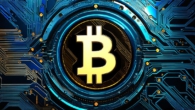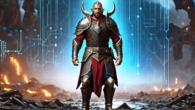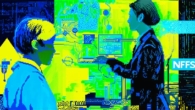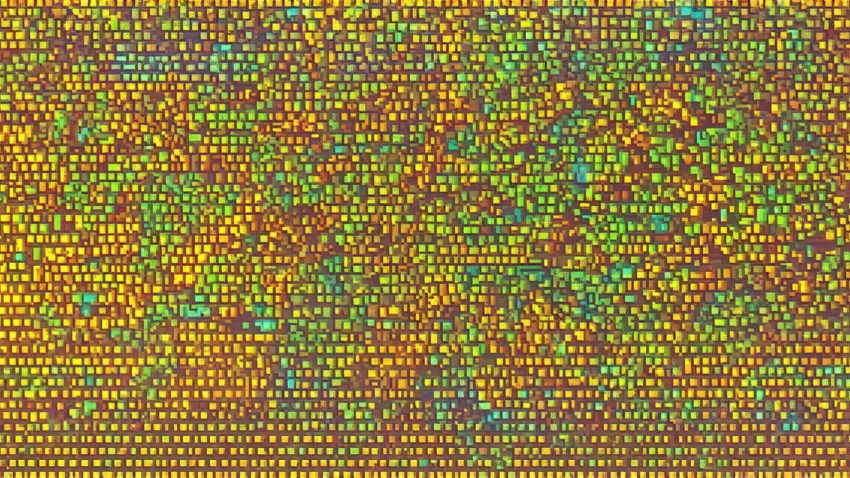
Why does an NFT have value
Understanding NFTs
Before diving into the value of NFTs, let’s first understand what they are and how they work. An NFT is a digital asset that represents ownership of something unique, such as a piece of art, a collectible, or even a domain name. Unlike other forms of digital assets, such as cryptocurrencies, which are interchangeable and fungible, NFTs are one-of-a-kind and cannot be replaced with another item.
The value of an NFT comes from its unique characteristics and the demand for it. Just like physical art or collectibles, the value of an NFT is determined by factors such as rarity, authenticity, and cultural significance. The more scarce and desirable an NFT is, the higher its value will be.
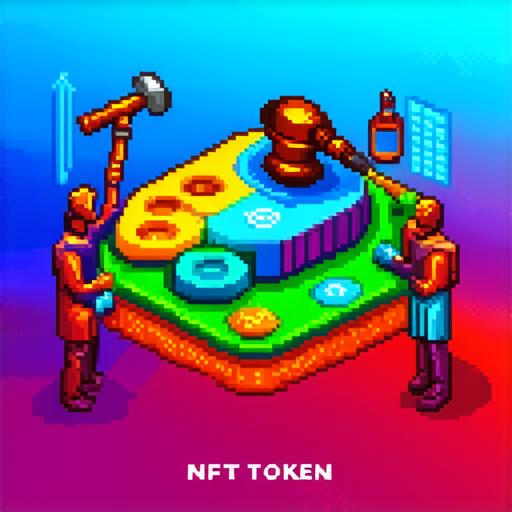
The Role of Blockchain in NFTs
One of the key features that sets NFTs apart from other forms of digital assets is their use of blockchain technology. Blockchain provides a secure and transparent way to store and transfer ownership of NFTs, making it easy to verify the authenticity and uniqueness of each item.
Additionally, the immutable nature of blockchain ensures that once an NFT is created, it cannot be altered or deleted, adding to its value and rarity. This makes NFTs a powerful tool for artists, collectors, and other creatives to monetize their work and establish ownership over unique digital assets.
Real-life Examples of NFTs
Now that we have a better understanding of what NFTs are and how they work let’s look at some real-life examples of how they are being used.
Art
One of the most well-known use cases for NFTs is in the art world. Digital artists can now create unique pieces of art and sell them as NFTs, allowing them to monetize their work and establish ownership over their digital creations. In fact, some of the world’s most famous artists, such as Beeple and Grimes, have already sold their works as NFTs, fetching millions of dollars in the process.
Gaming
Another area where NFTs are gaining popularity is in gaming. Games can now create unique in-game assets, such as rare weapons or characters, and sell them as NFTs, allowing players to monetize their virtual possessions. This also creates a sense of scarcity and exclusivity, making the items more valuable and desirable.
Real Estate
NFTs are also being used in the real estate industry to represent ownership of unique digital assets, such as virtual land or even entire properties. This allows for fractional ownership of real estate, making it easier for people to invest in property without the need for a large down payment.
The Future of NFTs
As the popularity of NFTs continues to grow, we can expect to see more use cases and applications emerge. The future of NFTs looks bright as they continue to revolutionize the way we create, own, and monetize digital assets.
FAQs
What is an NFT?
An NFT is a non-fungible token that represents ownership of something unique, such as art, collectibles, or even domain names. Unlike other forms of digital assets, which are interchangeable and fungible, NFTs are one-of-a-kind and cannot be replaced with another item.
How does the value of an NFT work?
The value of an NFT is determined by factors such as rarity, authenticity, and cultural significance. The more scarce and desirable an NFT is, the higher its value will be.
What role does blockchain play in NFTs?
Blockchain provides a secure and transparent way to store and transfer ownership of NFTs, making it easy to verify the authenticity and uniqueness of each item. The immutable nature of blockchain ensures that once an NFT is created, it cannot be altered or deleted, adding to its value and rarity.
What are some real-life examples of NFTs?
NFTs have a variety of applications across different industries, including art, gaming, and real estate. Some examples include digital art, rare weapons in games, and virtual land or properties.
Summary
In conclusion, NFTs have value due to their unique characteristics and the demand for them. As blockchain technology continues to evolve, we can expect to see more use cases and applications emerge, making NFTs a powerful tool for artists, collectors, and other creatives to monetize their work and establish ownership over unique digital assets.


